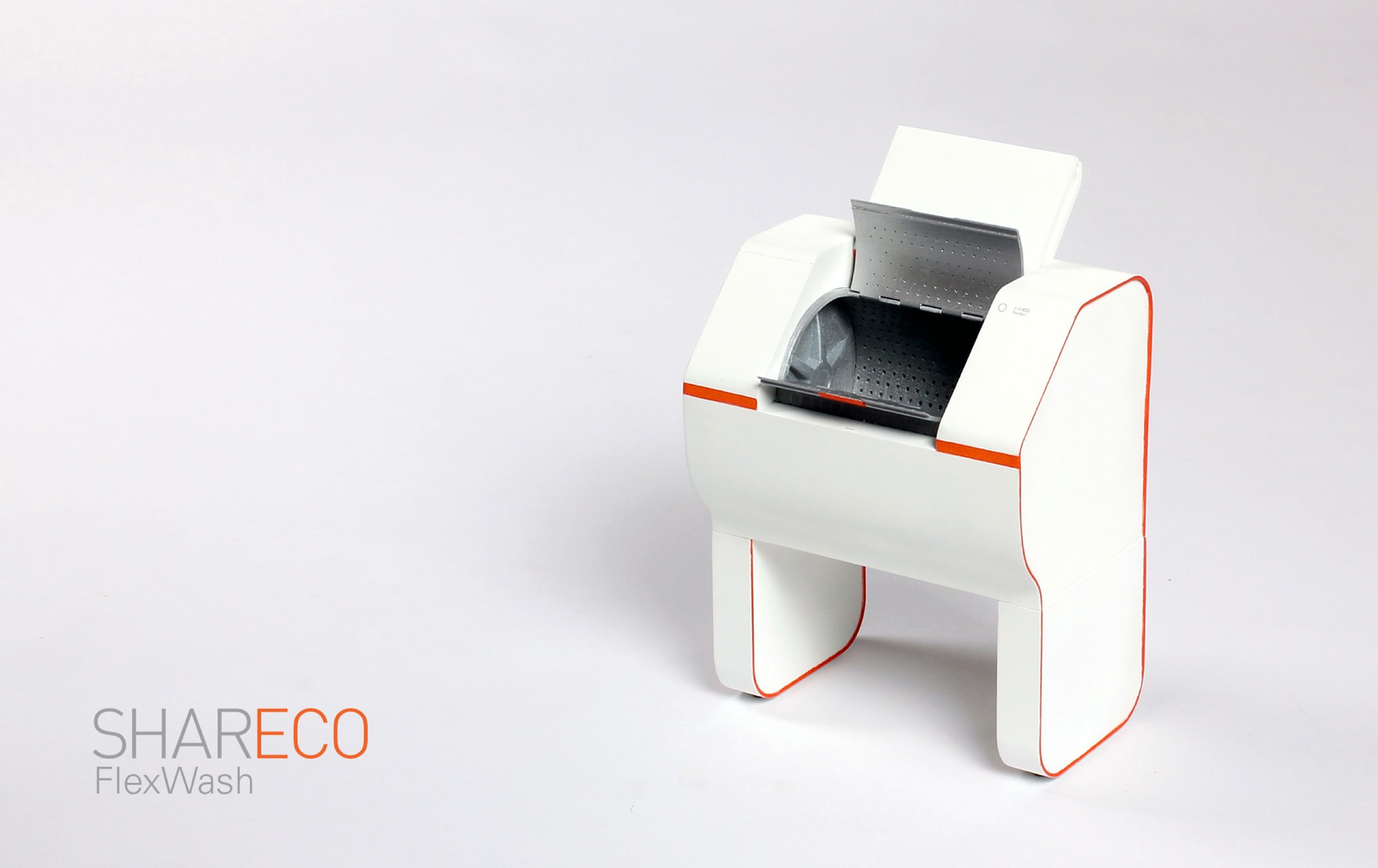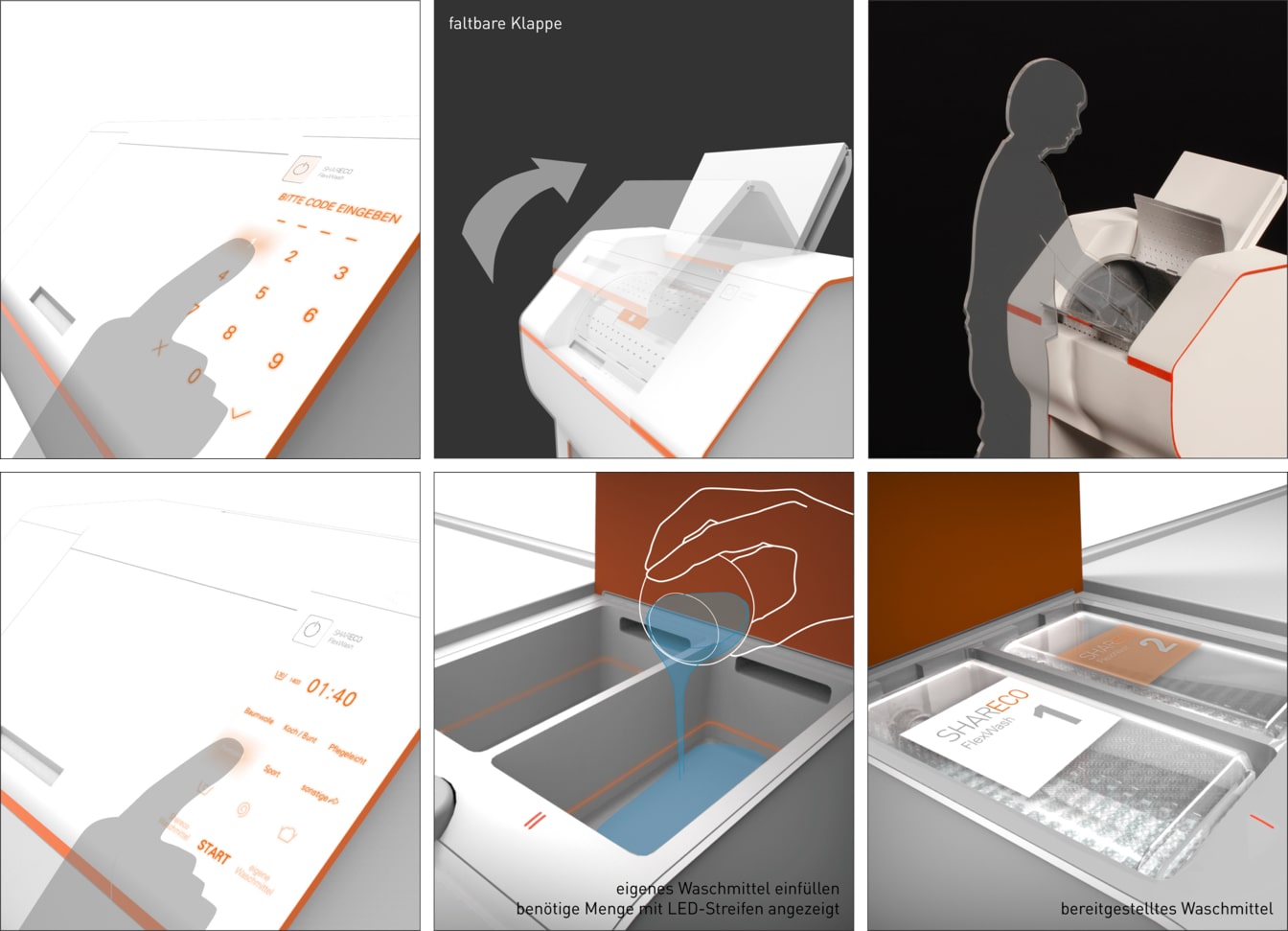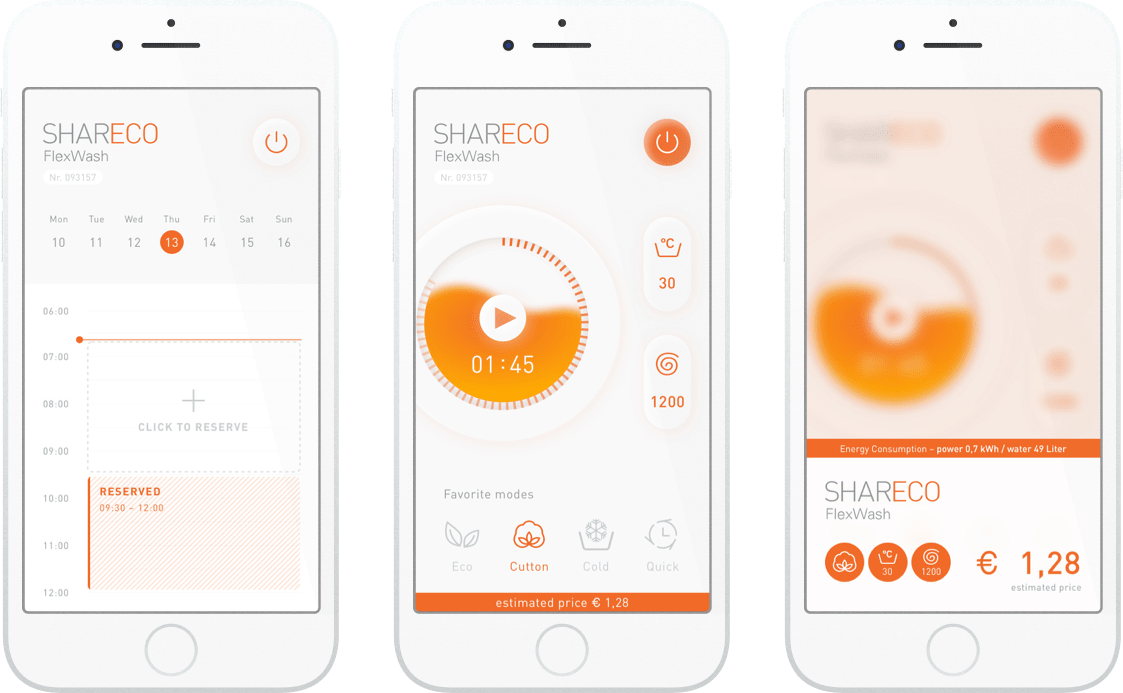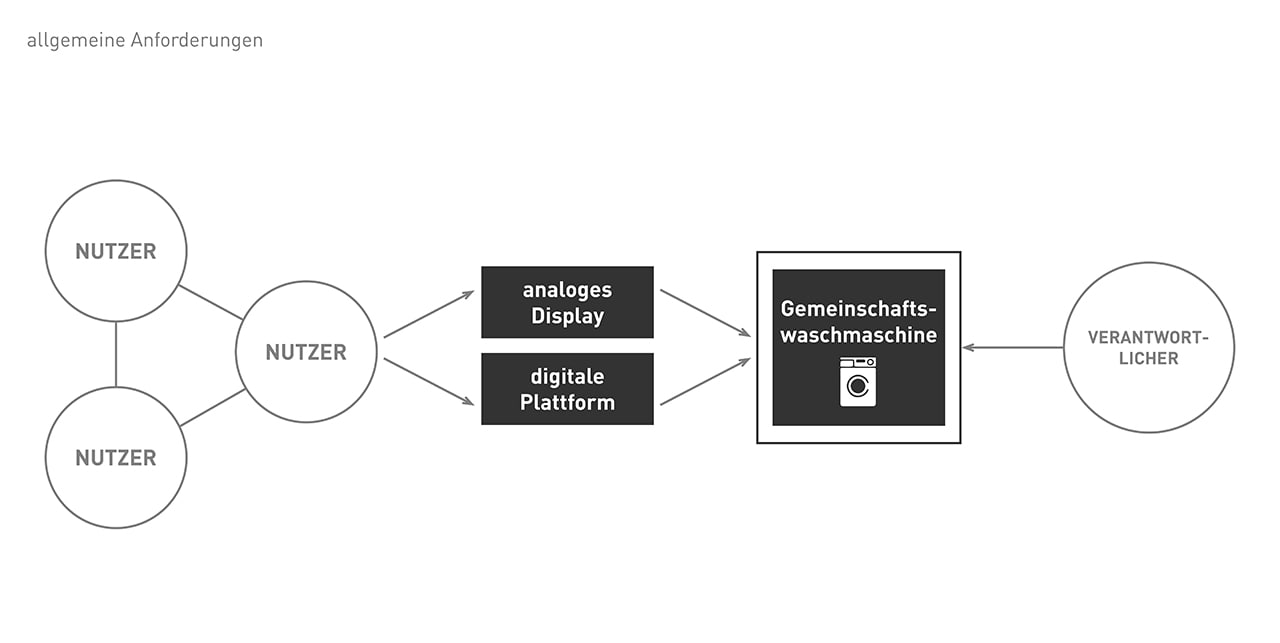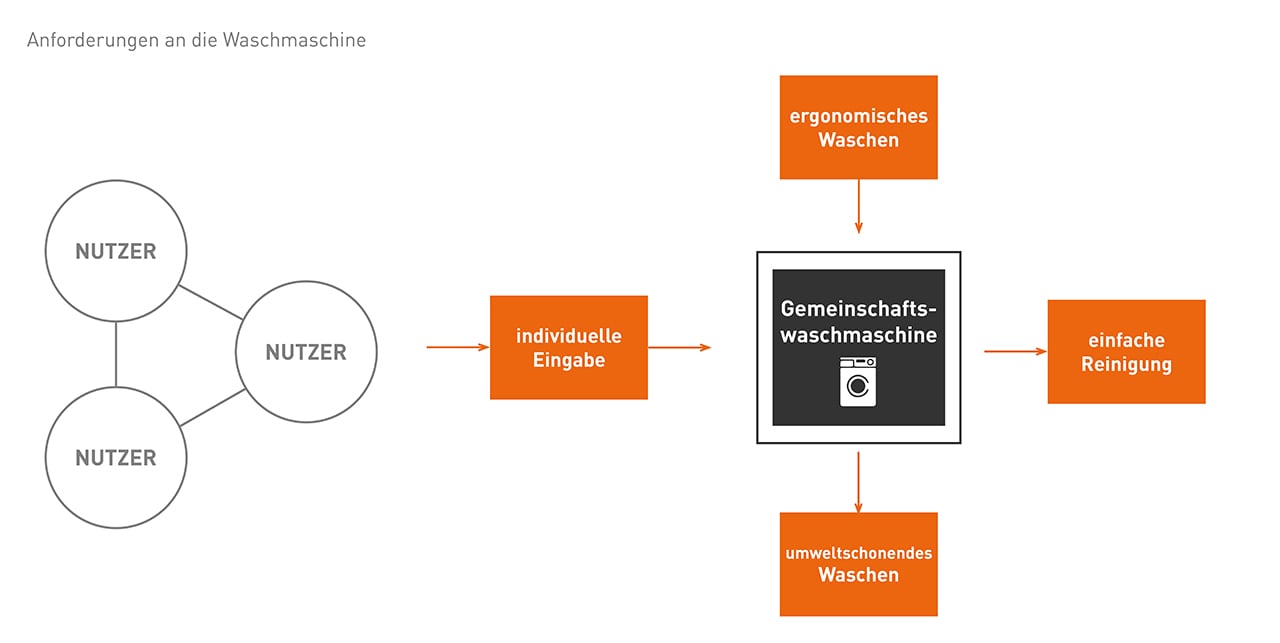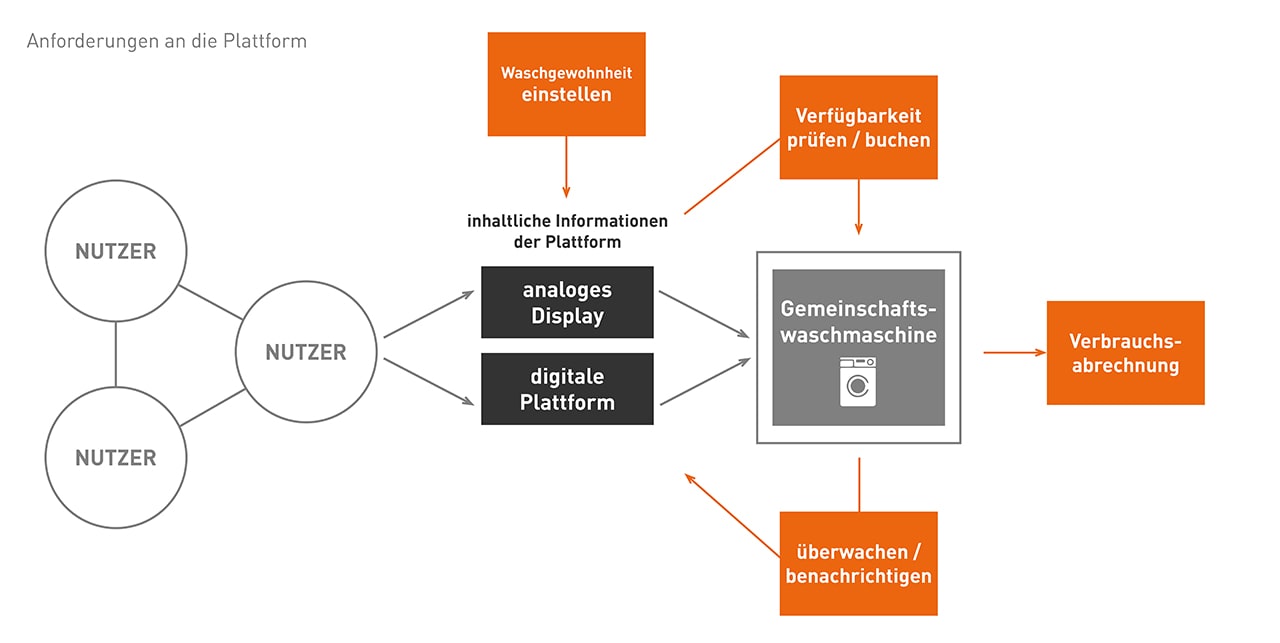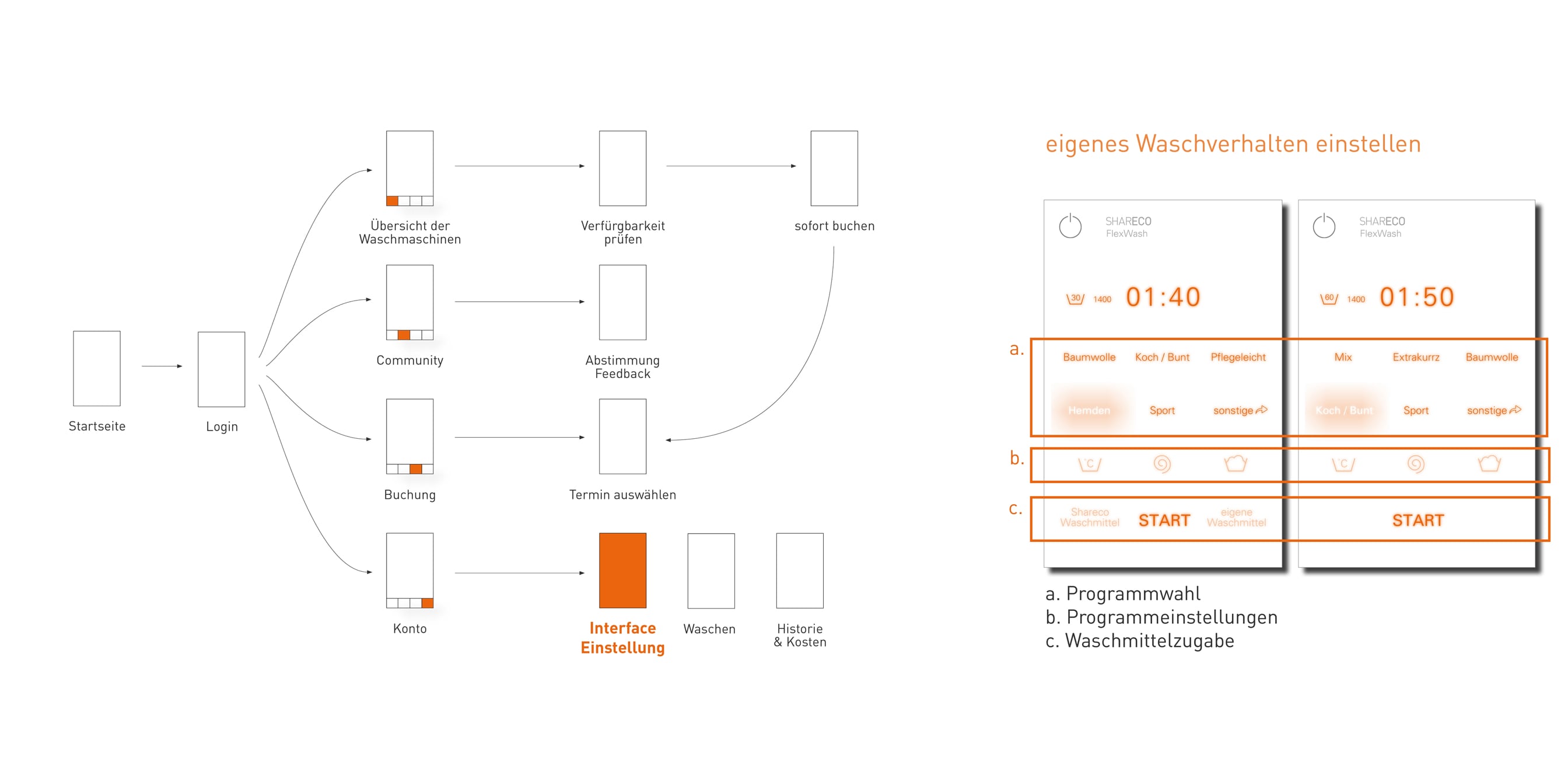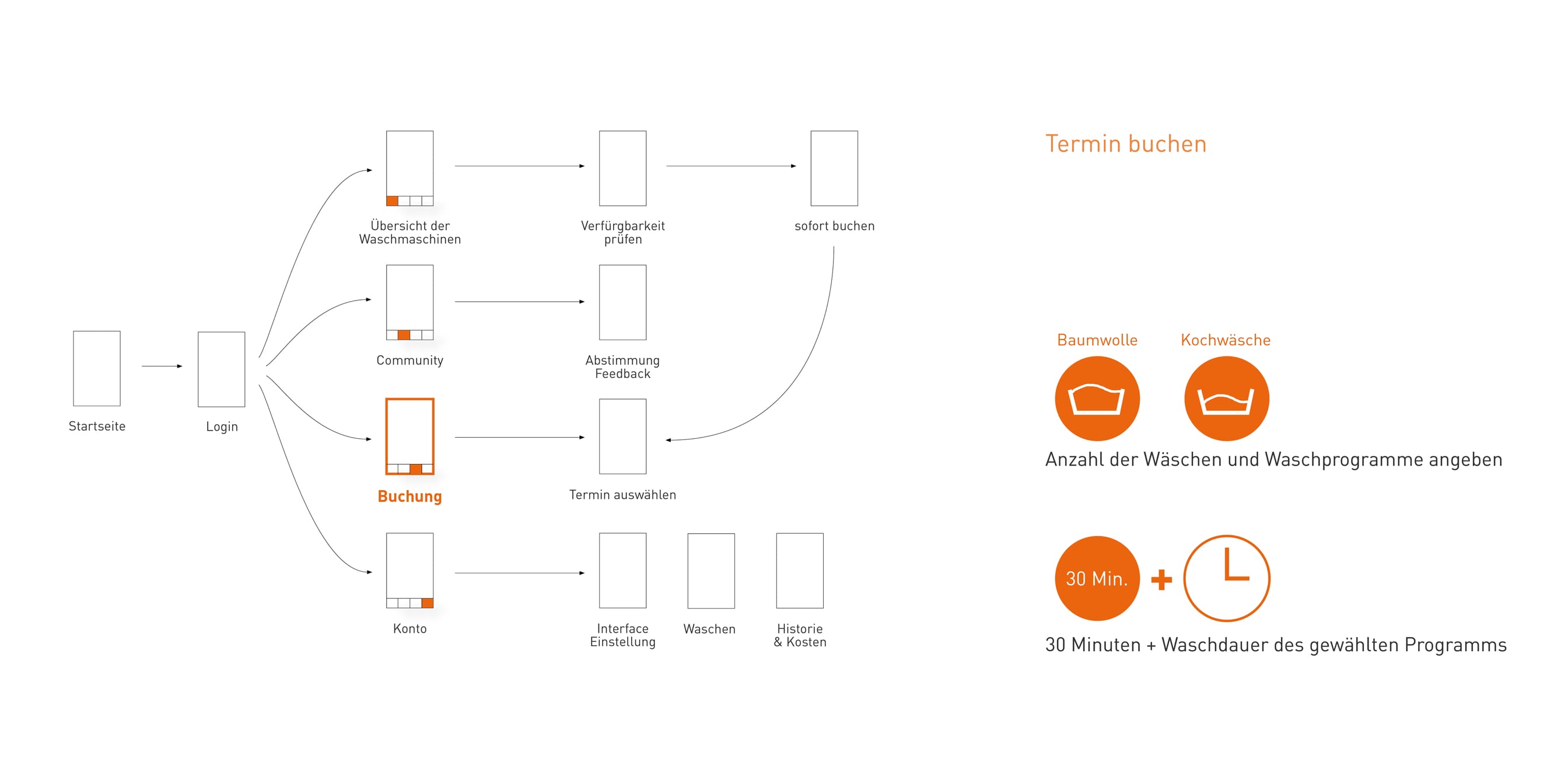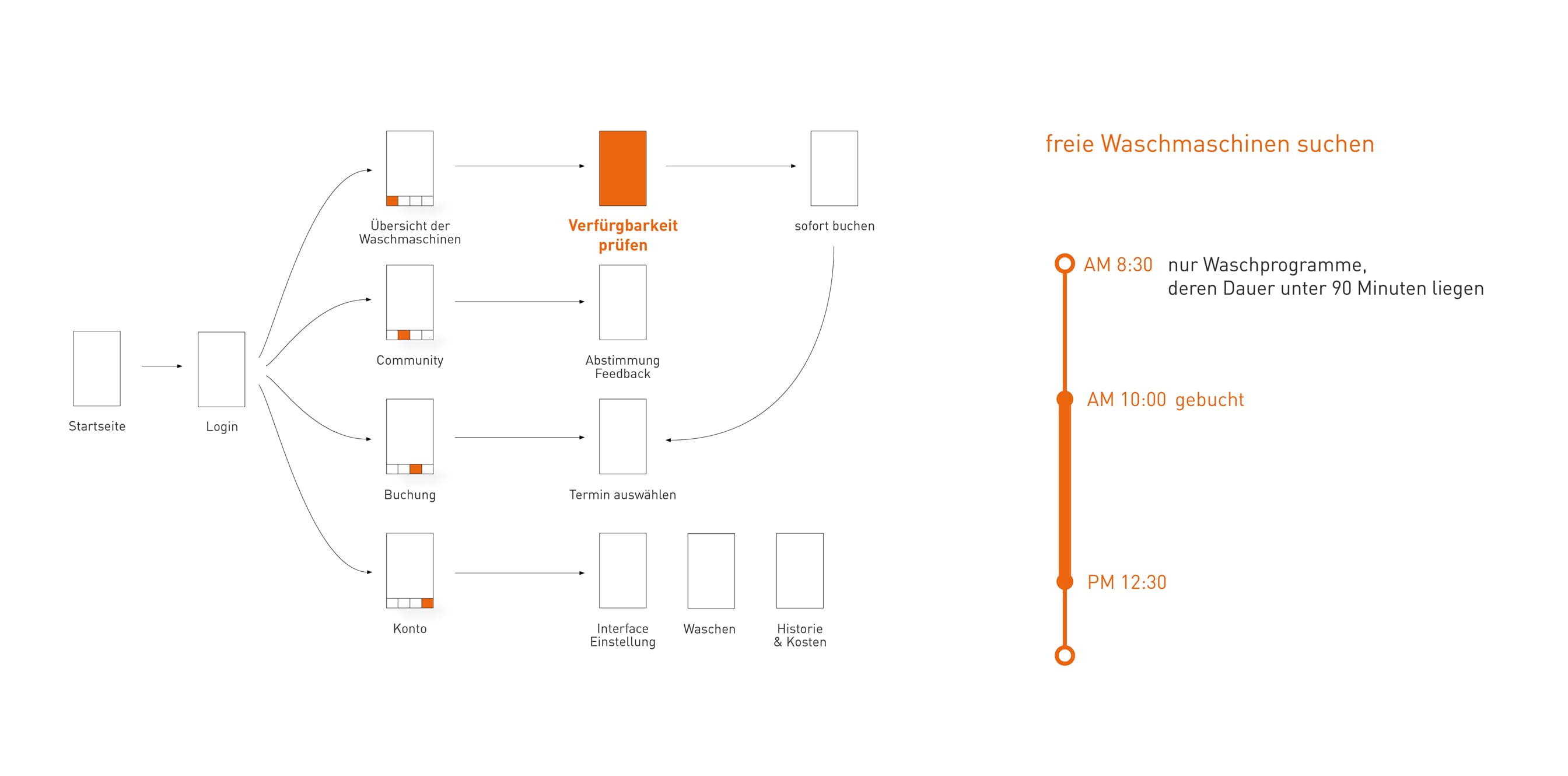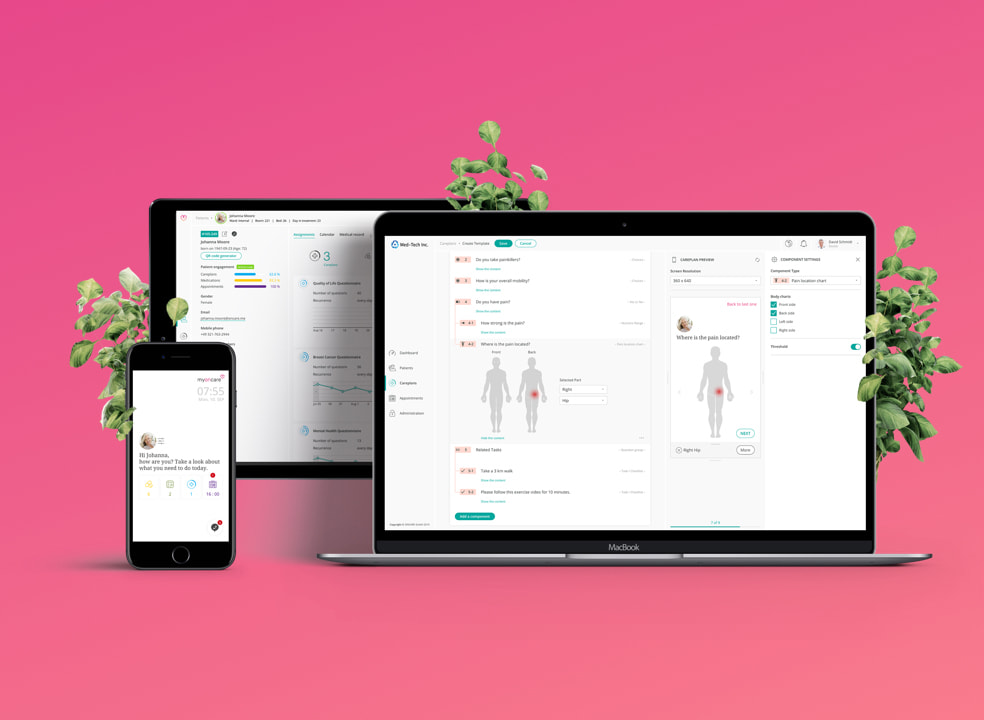
Concept design of an individual, environmentally friendly and user-friendly washing machine for shared use
New conception and digital service of a shared washing machine
More than 90% of German households have a washing machine, but it is usually only used 2-3 times a week. Every year in Germany about 1.8 million tons of electrical waste are produced, the largest part of which are household appliances. However, the existing shared washing machines have only a small market. Motives for this are, apart from structural and building technical aspects, washing habits, hygienic concerns, time availability and convenience.
My product vision is to protect the environment through the shared use of washing machines in apartment buildings. The goal of the master thesis is a washing machine concept that eliminates lack of conventional solutions in order to improve the acceptance of communally used washing machines by the customer.
timeframe
03.2016 – 06.2016 (Master thesis)
supervisor
Prof. Peter Laabs, Prof. Gerd Flohr
designer
Kuan-Ju Bondes
must squat
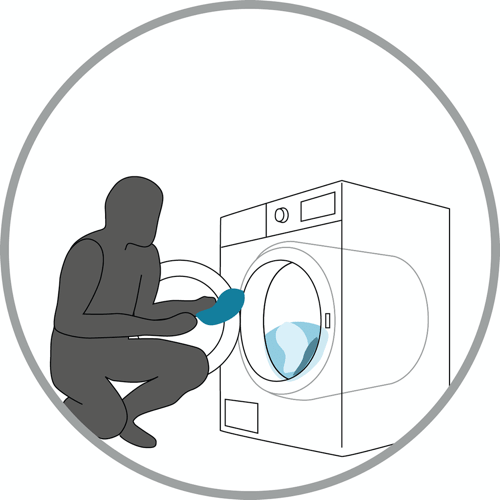
must bend down deeply
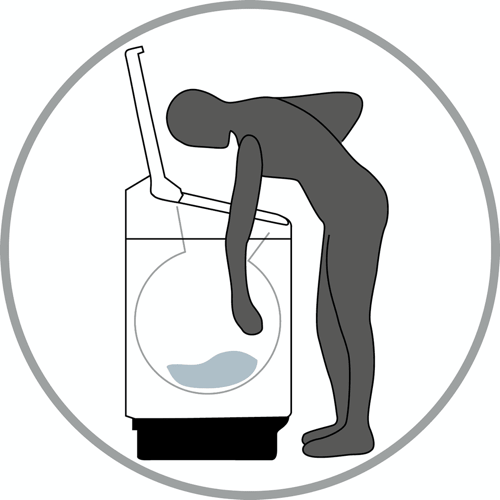
Interface with a single language
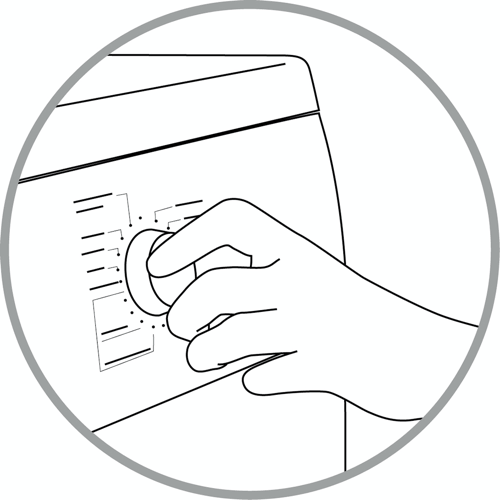
imprecise amount of detergent
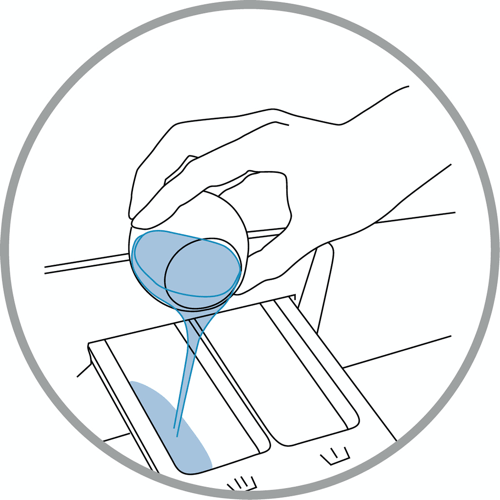
Laundry separation and full load
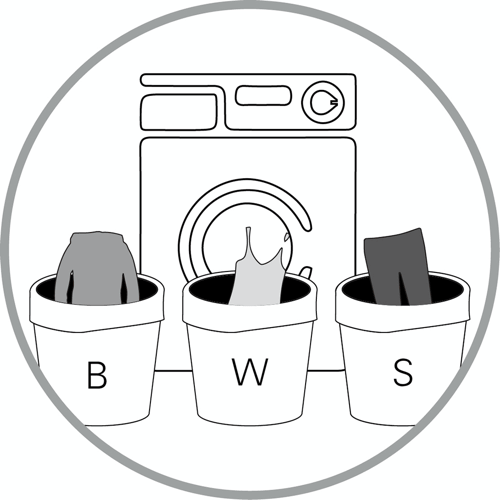
Problems with conventional drum washing machines:
must squat, must bend down deeply, Interface with a single language, imprecise amount of detergent, Laundry separation and full load
In Europe, people usually use drum washing machines, although there are some problems with their use; besides, many people do not know how to wash in an environmentally friendly way.
The leading washing machine manufacturers are usually also market leaders in the field of other household appliances which often place great emphasis on sustainability. In order to stand out, these brands are now moving towards networked household appliances with apps for remote control or monitoring.


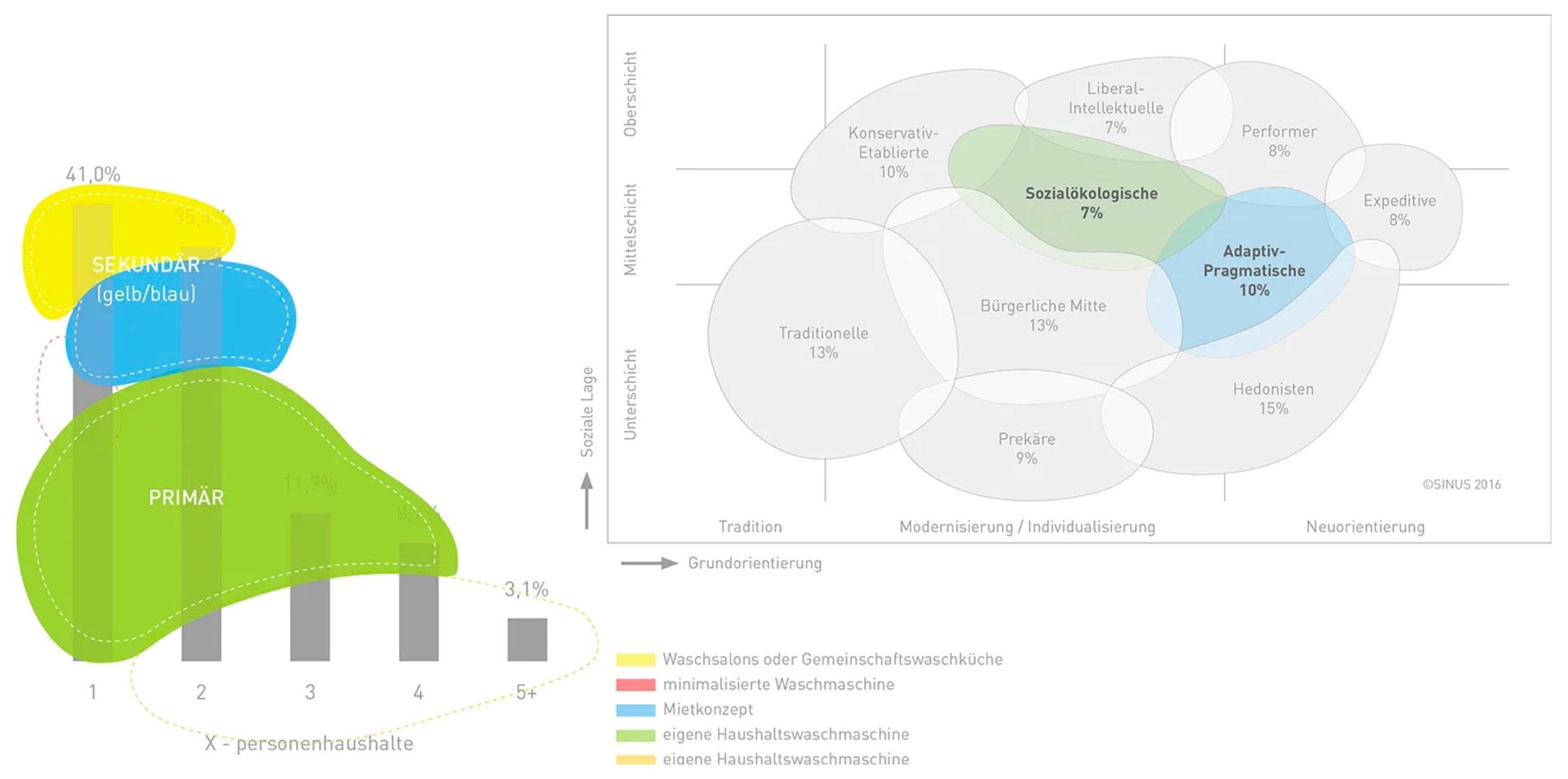
My target group is households living in apartment buildings, which belong to the socio-ecological and adaptive-pragmatic group
Individualization, environmental-and user-friendliness
Based on these aspects and a user survey, insufficiency and problems of conventional shared washing machines were identified and requirements for the new concept were derived. The main reasons for the low acceptance of laundries and comparable service are, in addition to the above-mentioned problems of environment and usability, mostly inconvenience (for example, due to the long distance to the location of the machine), a high cost factor, and a lack of individualization. This project focused on individualization, environmental friendliness and user-friendliness.
General requirements and requirements for the washing machine and the platform

SHARECO - economical & ecological
Among other things, the design includes an automatic volume adjustment of the drum to the amount of laundry, optimizations with regard to ergonomics and networking with mobile devices.
The result is an improvement of the classic shared washing machine in terms of ergonomics and convenience. This should make it possible to create incentives for shared use, pass on the willingness to share to other people and protect nature.
